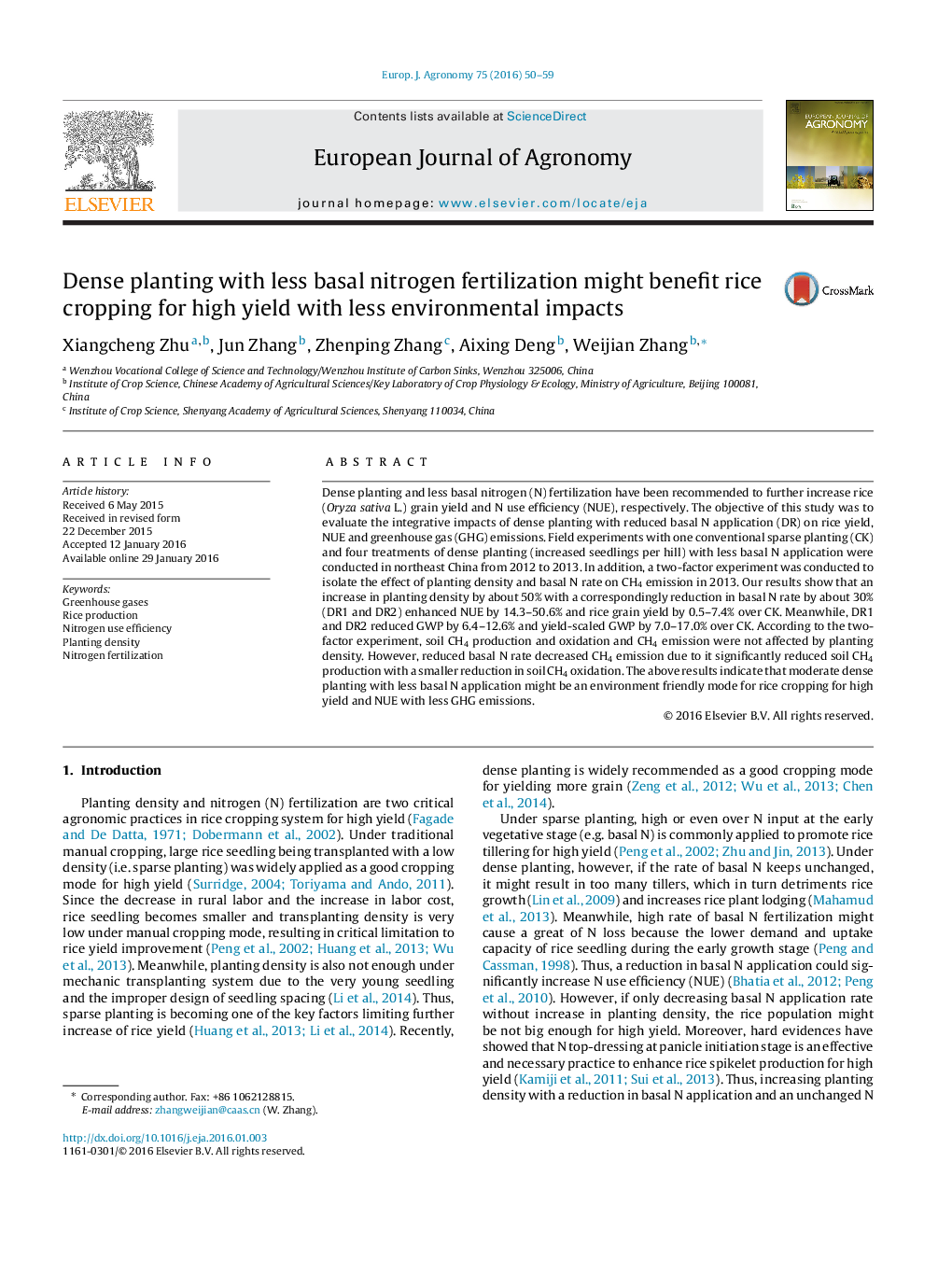| Article ID | Journal | Published Year | Pages | File Type |
|---|---|---|---|---|
| 4508688 | European Journal of Agronomy | 2016 | 10 Pages |
•Dense planting with less basal nitrogen increased rice yield and nitrogen use efficiency with less methane and nitrous oxide emissions.•No significant impacts of planting density on soil methane production and oxidation.•Significant impact of basal nitrogen cut on soil methane production rather than oxidation.
Dense planting and less basal nitrogen (N) fertilization have been recommended to further increase rice (Oryza sativa L.) grain yield and N use efficiency (NUE), respectively. The objective of this study was to evaluate the integrative impacts of dense planting with reduced basal N application (DR) on rice yield, NUE and greenhouse gas (GHG) emissions. Field experiments with one conventional sparse planting (CK) and four treatments of dense planting (increased seedlings per hill) with less basal N application were conducted in northeast China from 2012 to 2013. In addition, a two-factor experiment was conducted to isolate the effect of planting density and basal N rate on CH4 emission in 2013. Our results show that an increase in planting density by about 50% with a correspondingly reduction in basal N rate by about 30% (DR1 and DR2) enhanced NUE by 14.3–50.6% and rice grain yield by 0.5–7.4% over CK. Meanwhile, DR1 and DR2 reduced GWP by 6.4–12.6% and yield-scaled GWP by 7.0–17.0% over CK. According to the two-factor experiment, soil CH4 production and oxidation and CH4 emission were not affected by planting density. However, reduced basal N rate decreased CH4 emission due to it significantly reduced soil CH4 production with a smaller reduction in soil CH4 oxidation. The above results indicate that moderate dense planting with less basal N application might be an environment friendly mode for rice cropping for high yield and NUE with less GHG emissions.
